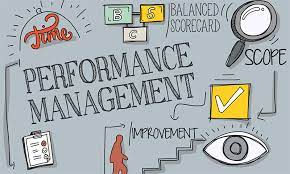Want help to write your Essay or Assignments? Click here
Performance management system
A key aspect of performance management entails managing staff members and managers, given that their performance would have a significant effect on the company’s performance altogether. In this posting, the student is exactly right by pointing out that employee rewards for performance should actually be linked directly to goal setting, employee development, competency measures as well as team performance and helps workers to feel empowered.
The student states that rewards could be delivered in different ways, which is very true. A reward system basically comprises all the psychological, non-financial, and financial payments that a company offers to its staff members in exchange for the work they carry out (Aguinis, 2012). Not every employee is motivated by money and therefore it is important to also have non-monetary reward methods such as flexible working patterns.
Performance management system
Want help to write your Essay or Assignments? Click here
Linking performance to distribution of incentives, bonuses and salary contributes effectively to talent management and helps to motivate people. Researchers have reported that when executed well, pay for performance could actually motivate employees to do their work tasks well (Chiang & Birtch, 2012). In addition, the student is also correct by stating that an organization should set attainable goals for its employees and give support and encouragement to the employees to achieve the goal and then reward them after they have achieved the goals as this would demonstrate commitment from both sides.
On the whole, the main objectives of having a reward scheme are as follows: to conform to legal regulations; to motivate staff members; and to be ethical. Other objectives are to support the corporate goals by aligning the goals of the company with the goals of the staff members; to align the risk preferences of employees and managers with the risk preferences of the organization; and to ensure that the company can recruit and retain an adequate number of staffs with the appropriate skills (Mujtaba & Shauaib, 2010).
References
Aguinis, H. (2012) Performance management, 3rd ed. Upper Saddle River, NJ: Pearson Prentice Hall. Chapter 10, ‘Reward systems and legal issues’
Chiang, F, & Birtch, T. (2012). ‘The Performance Implications of Financial and Non-Financial Rewards: An Asian Nordic Comparison’, Journal Of Management Studies, 49, 3, pp. 538-570, Business Source Complete, EBSCOhost, viewed 8 December 2015.
Mujtaba, B. G. & Shauaib, S. (2010). An equitable total rewards approach to pay for performance management. Journal of Management Policy and Practice, 11 (4), pp.111-121.
Performance management system
Want help to write your Essay or Assignments? Click here


